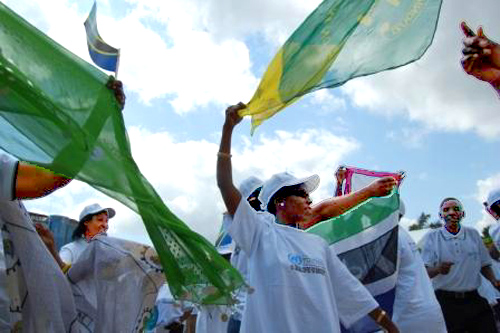
Last week the most pronounced violence ever to hit Arusha town occurred when proponents of two opposing political camps tried planting their flags in the city market area. Police moved in to break up the heated exchange and proponents began pelting the police with stones.
The police responded with tear gas that at first actually attracted more brawlers into the fight, which did last several hours. The incident was over before nightfall and remains the most severe violence so far.
In Dodoma, Tanzania’s technical capital city, police began arrests yesterday afternoon of suspects they claimed were planning more election violence. The strict laws in Tanzania give police the right to hold such persons without charges for an indefinite period of time.
Unlike in Kenya three years ago, these are not issue-driven incidents. They are basically thugs and bullies whose local differences vary greatly from region to region. The difference between the various national parties in Tanzania is actually quite small with regards to substantive issues.
That was not the case in Kenya, where stark differences separated the people’s socialist candidate, from the ruling elite’s business candidate.
Another important difference is that Tanzania’s election on October 31 will not be close. It may be closer than 2005, when current president Jamaya Kikwete won by more than 80 percent of the vote. In fact a poll released yesterday stunned the nation when it suggested Kikwete’s margin this time may be less than 15%. But by most analyses, it will be considered a landslide.
The trigger for the massive Kenyan violence was an election so close that like Bush/Gore, the victor arose from the power extant. It was simply too difficult to untangle the closeness to obtain a rational, undisputed outcome.
And the final, possibly most important difference, is that there is no single hotbed of dissent in Tanzania, as in the massive Kenyan slums of Nairobi. It was there in Kibera and other slums surrounding Nairobi that the violence burst. There are no massive concentrations in Tanzania of populations who feel disenfranchised from the status quo.
So don’t worry as you read growing accounts of Tanzanian election violence. I don’t yet see any possibility of widespread reaction to the election two weeks from Sunday.
One thought on “Tanzania Violence No Catastrophe”